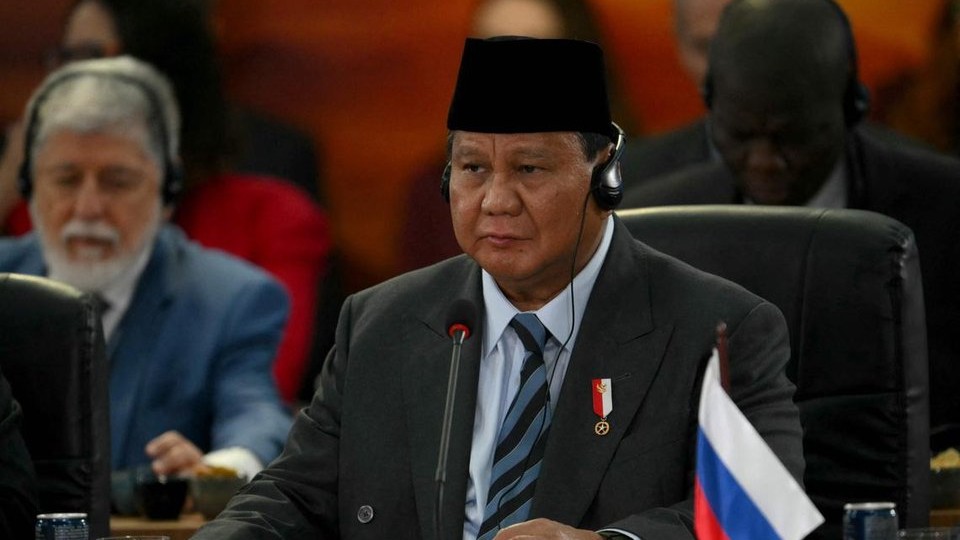Jakarta – President Prabowo Subianto’s first appearance at the BRICS Summit in Rio de Janeiro has drawn both praise and caution, as analysts warn that Indonesia’s expanding global aspirations may put strain on its regional commitments within ASEAN and its trade ties with the United States.
The summit, held on July 6–7, marked Indonesia’s debut as a full member of BRICS, the economic group founded by Brazil, Russia, India, China and South Africa. With 11 members in total, BRICS aims to champion the Global South by enhancing South-South cooperation and reshaping the global financial order.
According to Cabinet Secretary Teddy Indra Wijaya, President Prabowo views Indonesia’s inclusion as a strategic opportunity to “strengthen its global standing” and “support global stability and prosperity”. Indonesia now has access to the New Development Bank (NDB), a multilateral lender offering flexible terms for infrastructure and development financing, often seen as an alternative to the IMF, World Bank and ADB.
Associate Professor Yohanes Sulaiman of Jenderal Achmad Yani University noted that the NDB is attractive to developing countries due to its less stringent lending requirements. “Many Asian and African countries feel restricted by traditional institutions. BRICS offers money with fewer strings attached,” he said, citing Indonesia’s new capital city project and national food programmes as potential beneficiaries.
During his June visit to St. Petersburg, President Prabowo helped secure a €2 billion investment agreement between Indonesia’s sovereign wealth fund, Danantara, and Russia’s Direct Investment Fund. Indonesia also intends to use NDB support for green energy initiatives, Coordinating Minister Airlangga Hartarto confirmed in Brazil.
But while the economic opportunities are substantial, diplomatic consequences loom. Analysts warn that Indonesia’s entry could reshape ASEAN dynamics. Thailand has already expressed interest in joining BRICS, receiving Prabowo’s endorsement during a bilateral visit in May.
According to Professor Teuku Rezasyah, such developments may lead to new intra-ASEAN coalitions and “a parallel caucus” within BRICS. “We could see the emergence of a BRICS-aligned subgroup among ASEAN members, potentially including Vietnam and Malaysia,” he said.
This could risk weakening ASEAN unity if some member states become more aligned with BRICS than with ASEAN’s collective vision. Muhammad Habib Abiyan Dzakwan from the Centre for Strategic and International Studies (CSIS) said Indonesia must ensure it maintains full diplomatic engagement within ASEAN or risk damaging its regional leadership status.
Still, analysts believe ASEAN will likely adapt. “Most member states respect Indonesia’s sovereign decision,” Habib said. “ASEAN might seek new modes of cooperation with BRICS without altering its foundational non-alignment.”
The challenge becomes more delicate amid growing tensions between BRICS and the West. On July 7, former US President Donald Trump threatened additional 10% tariffs on countries aligning with what he described as “anti-American BRICS policies,” a day after the BRICS joint communiqué criticized US tariffs and military actions.
Indonesia has already received notice of a reciprocal 32% tariff from the US, potentially impacting exports unless negotiations succeed before August 1. This places Jakarta in a difficult position as it attempts to balance new alliances while preserving strategic ties with Washington.
Professor Yohanes warned: “While Indonesia claims non-alignment, Washington may interpret its BRICS membership otherwise—especially under a Trump administration.”
Professor Rezasyah emphasized that the economic fallout could affect Indonesia’s small and medium enterprises (SMEs), many of which rely on market access to the US and EU. He urged a careful diplomatic approach, suggesting that Jakarta propose a distinct, inclusive agenda within BRICS—focusing on health, climate, and sustainable development.
Despite warnings, analysts agree that BRICS offers Jakarta a significant platform to push its development agenda and expand global influence. But there is consensus that Indonesia’s success will depend on measured diplomacy—balancing BRICS engagement with continued ASEAN leadership and constructive US relations.
What complicates matters further, analysts say, is President Prabowo’s unconventional foreign policy style. “Unlike his predecessors, Prabowo’s diplomacy is instinct-driven, often bypassing traditional foreign ministry channels,” Yohanes said.
As BRICS moves to define its new global role, Indonesia finds itself walking a fine line—seeking growth and influence, without losing long-standing friends. Whether Prabowo can maintain that balance may define the next phase of Indonesia’s regional and global engagement.







